DIRECTED BY: Harry Beaumont
STARRING: Anita Page, Bessie Love, Charles King
WON: Best Picture
NOMINATED FOR: Best Actress in a Leading Role (Bessie Love)
Best Director (Harry Beaumont)
The 2nd Best Picture winner opens big, with a vast shot of New York City as filmed from an airplane.

We spend about half a minute to absorb the setting. Similar shots were used in The Crowd to reveal the city as a massive machine, impossible for any individual to conquer, where as Speedy took the same kind of shots to create a poem celebrating the city for it's communities and quirks.
The Broadway Melody shares neither of those ambitions. The film mearly shows New York for the sake of showing New York, and then confines the rest of the film into tiny sound stages. That sums up the film perfectly: A film that by every right should have been ambitious and interesting, but decided to confine itself in trite and confusing plot points.
The film holds the distinction of being one of the first musicals ever, and the first musical to win Best Picture. That doesn't mean anything, though. The songs are just songs. They are not used to tell the story, they aren't related to the actual plot, the film is put on hold so that the actors can sing them. I'm not even sure if you could call that a musical.
And is it really that smart to make a musical this early into the history of talkies? People could barely figure out microphones, let alone sound editing, and scenes involving more then one person talking or making noise turned the scenes into clustered messes. Here's a scene near the beginning that's the perfect example of what I'm talking about, which also follows into the film's first song:
Hope you like that song, because it's not the last time we hear it.

Beyond bad sound and quaint songs, the film doesn't offer anything beyond a by-the-numbers struggle-for-success story, only now in sound for the first time. Two small town girls, Hank and Queenie Mahoney, make a new home in a New York hotel, trying to break into Broadway. They have a friend named Eddie on the inside, the big wig star you saw singing earlier, who is also Hank's boyfriend. They haven't seen Eddie for a while, so when Eddie sees how much Queenie has blossomed...
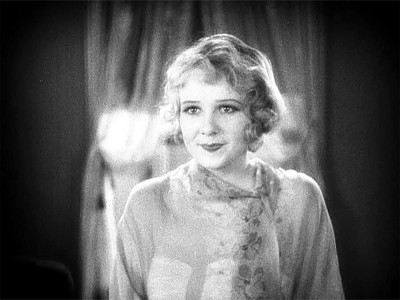
...he IMMEDIATELY jumps ship.
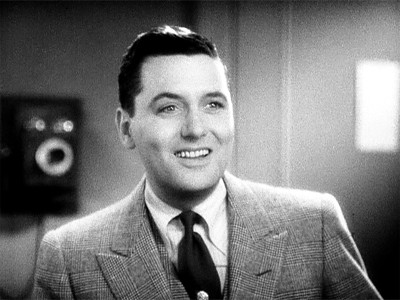
Queenie isn't the smartest apple, and Eddie is shallow as all hell, but you're not going to believe this, but these two are the characters we're supposed to attach ourselves to. By the end of the film, Eddie will have cheated on Hank, Queenie will have turned down the advances of a rich but really really nice producer (who everybody in the film hates for no reason I can see), and then the two get married and we're supposed to treat this like a happy ending. I'm not sure if this is just an example of old-school 1920s values or some clunky attempt at a sad ending.
What the hell is this movie supposed to be?
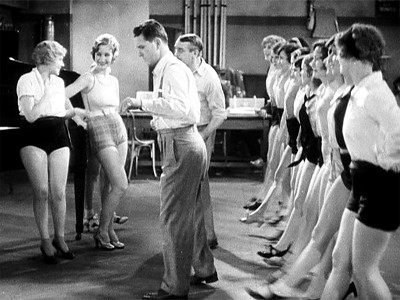
If I was to say anything nice about this film, it'd probably be that it provides a decent look at the behind-the-scenes of the Broadway variety shows of the time, and boy, do they seem like totally unappealing places. Nobody gets along, both the performers and producers are there just to make money... well, I guess that's pretty accurate t0 any job.
The Broadway performances themselves are standard fare and unimaginative, but even if they were amazing, we could barely see them anyway.
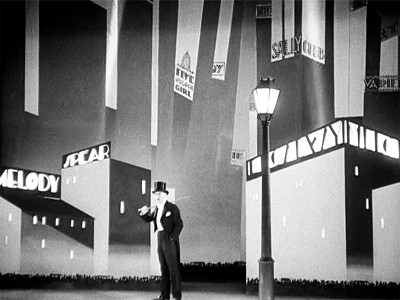
I suppose the filmmakers wanted to give us the feeling of being at an actual Broadway show, sitting in a decent middle row seat. This was an unfortunate attitude, and it makes the performances little and insignificant.
There's nothing really beyond this. Once again, I find myself with fewer things to say about the Best Picture winner then I do with the other nominees. The Broadway Melody isn't an awful film, it's just uninteresting and uninventive in a time where films really needed both.
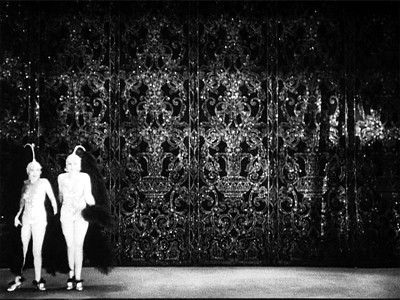
No comments:
Post a Comment